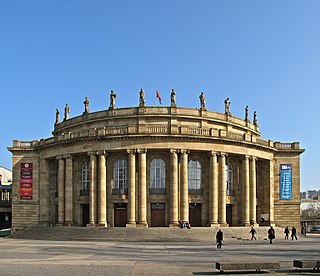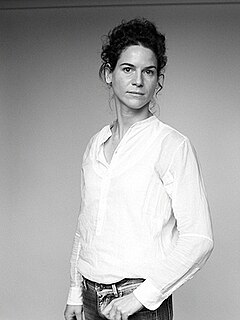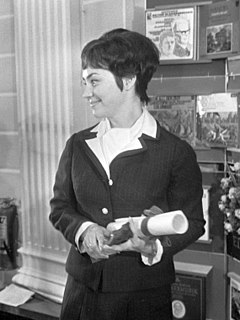Career
Born in Berlin, Fischer originally wanted to become a painter, but then studied biology and chemistry for a higher teaching position at the Free University of Berlin. From 1978 to 1981, he was a teacher and supervisor for drug addicts and foreign prisoners in the juvenile detention center of the Plötzensee Prison.

The Free University of Berlin is a research university located in Berlin, Germany. One of Germany's most distinguished universities, it is known for its research in the humanities and social sciences, as well as in the field of natural and life sciences.

Plötzensee Prison is a men's prison in the Charlottenburg-Nord locality of Berlin with a capacity for 577 prisoners, operated by the State of Berlin judicial administration. The detention centre established in 1868 has a long history; it became notorious during the Nazi era as one of the main sites of capital punishment, where about 3,000 inmates were executed. Famous inmates include East Germany's last communist leader Egon Krenz.
He frequently attended theatre rehearsals and was engaged in 1981 as assistant director and dramaturg for Günter Krämer and Hansgünter Heyme at the Staatstheater Stuttgart under director Hans Peter Doll . As a guest director he was assistant director and dramaturge at the Schiller Theater in Berlin in 1984, but as Krämer moved to the Theater Bremen in 1984, Fischer followed him there. In 1986, he led to differences between General Director Tobias Richter [1] and Krämer, who succeeded in ensuring that Fischer could remain at the house as a permanent guest director.
Günter Krämer is a German stage director, especially for opera, and a theatre manager who has staged internationally.

The Staatstheater Stuttgart(Stuttgart State Theatre) are a multi-branch-theatre with the branches Oper Stuttgart, Stuttgart Ballet and Stuttgart Drama Theatre in Stuttgart, Germany. The state that its name refers to is Baden-Württemberg.

The Schiller Theater is a theatre building in Berlin, Germany. It is located in the central Charlottenburg district at Bismarckstraße No. 110 near Ernst-Reuter-Platz.
When Krämer became artistic director of the Kölner Schauspiel in 1990, he was appointed senior director of the Bühnen der Stadt Köln. For his debut he staged a Tabori project with the farce Mein Kampf . Further productions in Cologne were Die Räuber (1991), Kroetz’ Bauerntheater (1991), Hebbel's Maria Magdalena (1992), Shakespeare's Twelfth Night (1993) and Jean Racine's Phèdre (1993). He supported the playwright Marlene Streeruwitz and staged the premieres of several of her plays. As a guest director, Fischer was especially active in Vienna at several theaters there.
An artistic director is the executive of an arts organization, particularly in a theatre or dance company, who handles the organization's artistic direction. They are generally a producer and director, but not in the sense of a mogul, since the organization is generally a non-profit organization. The artistic director of a theatre company is the individual with the overarching artistic control of the theatre's production choices, directorial choices, and overall artistic vision. In smaller theatres, the artistic director may be the founder of the theatre and the primary director of its plays. In larger non-profit theatres, the artistic director may be appointed by the board of directors.
Bühnen der Stadt Köln is an umbrella term for different cultural institutions in Cologne. Schauspiel Köln and Cologne Opera are two of them.

George Tabori was a Hungarian writer and theater director.
From 1995 to 2003 he held the position of acting director in Cologne. Other productions there included Ferenc Molnár's Liliom (1996), the world premiere of Wilfried Happel's Mordslust (1996), the world premiere of Tankred Dorst's Die Geschichte der Pfeile (1996) and Eugene O’Neills Long Day's Journey into Night (1998).

Liliom is a 1909 play by the Hungarian playwright Ferenc Molnár. It was well-known in its own right during the early to mid-20th century, but is best known today as the basis for the Rodgers and Hammerstein musical Carousel.
Wilfried Happel is a German writer and theatre director.

Tankred Dorst was a German playwright and storyteller.












